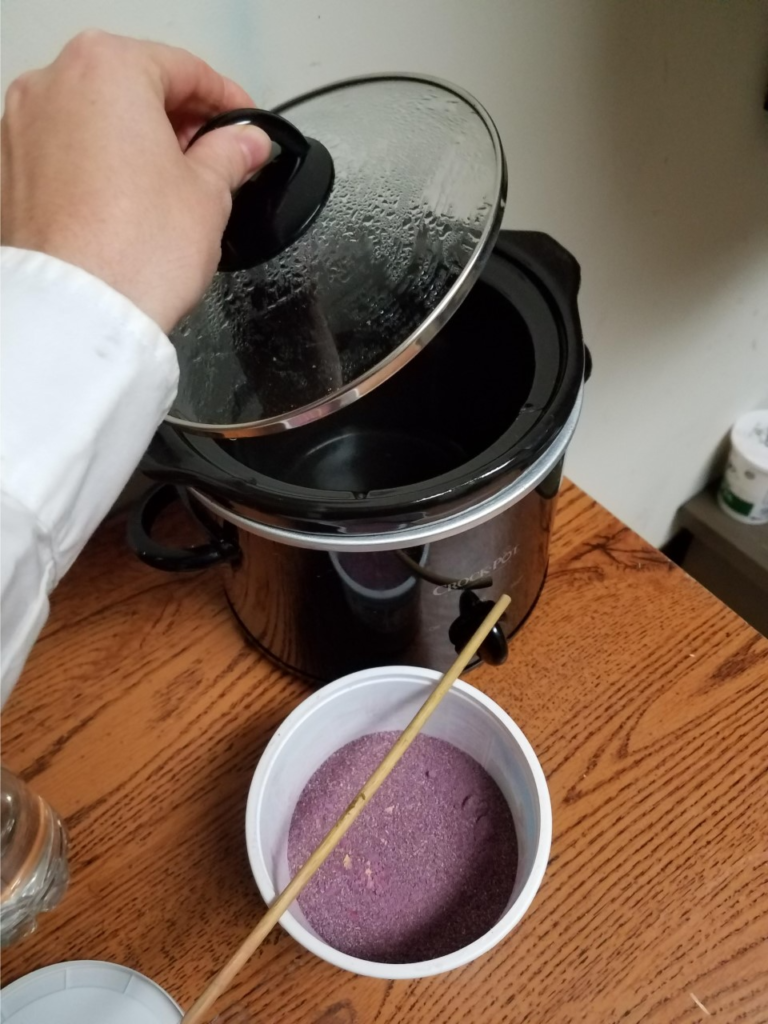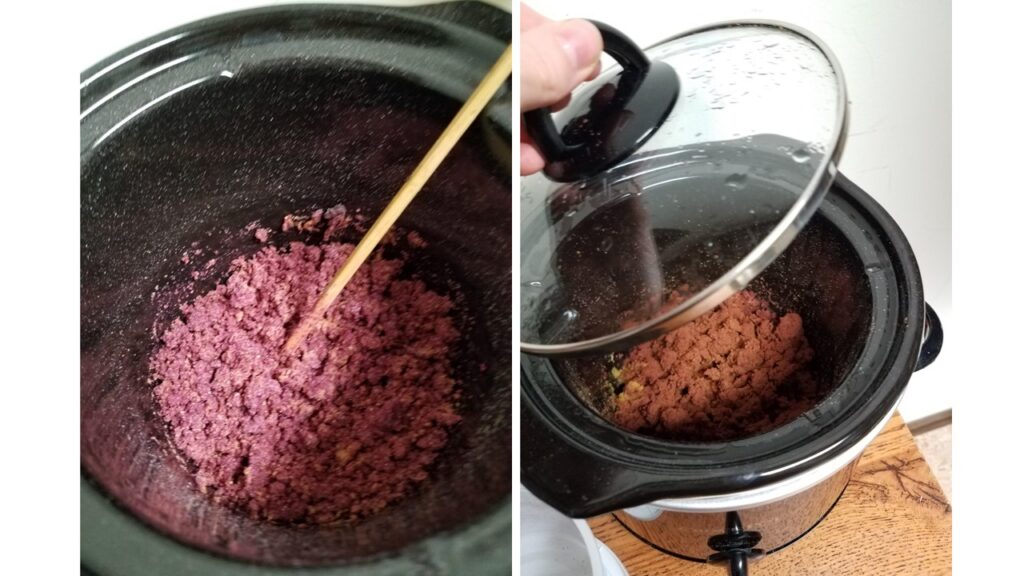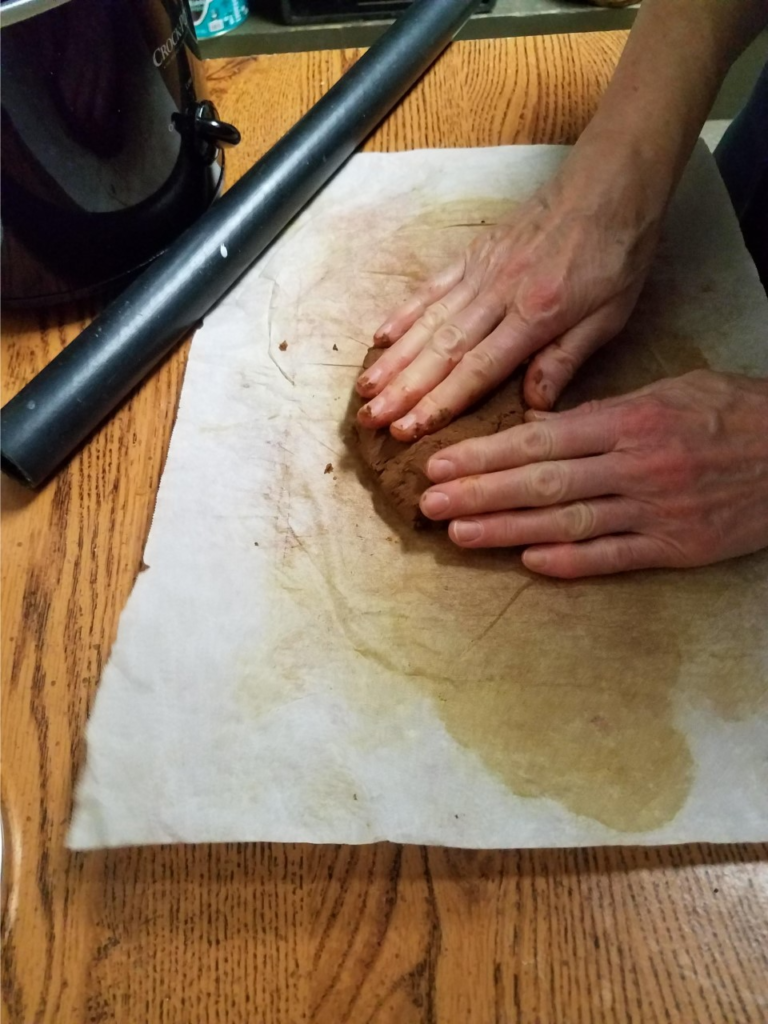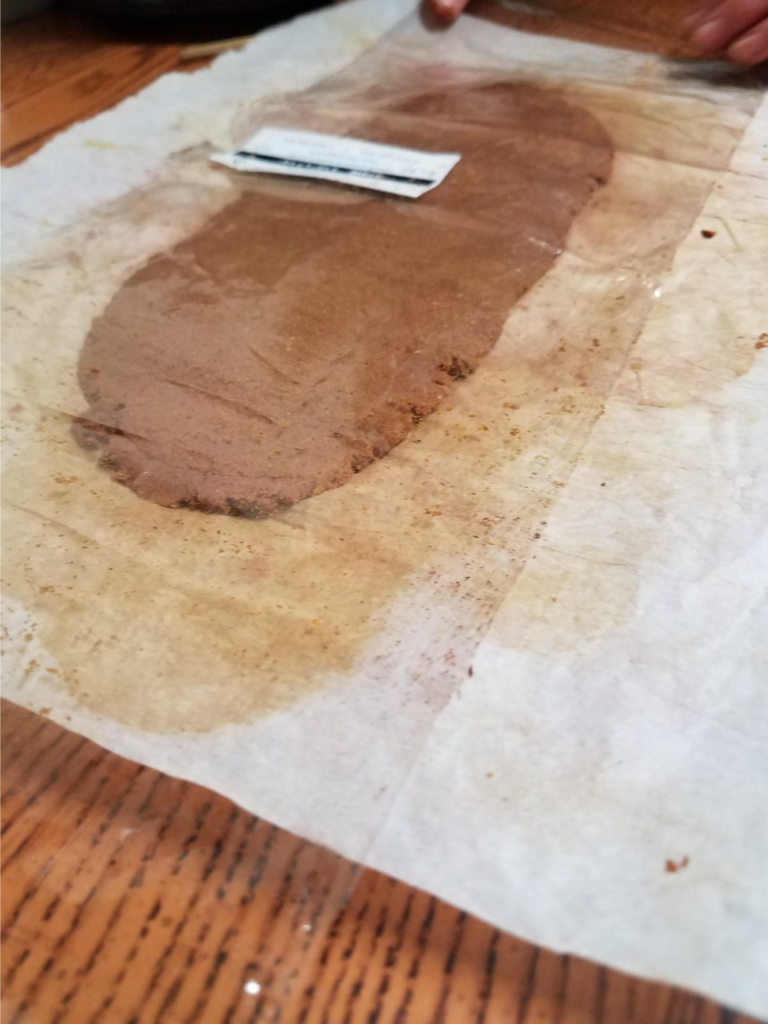Touching Heaven and Earth: From Rose to Rosary
Step 3: Creating Clay
Join us in reading a guest blog series by Sr. Orianne Dyck, a Novice with the Daughters of St. Paul, as she reflects upon the process of creating Rosary beads from rose petals.
There is a vulnerability to clay that I never realized existed – it needs so much attention! Mind you, I’ve never worked with real clay, only with rose-petal clay. That’s right… that powder we made the last step from the ground rose petals? Step 3 is to turn this powder into a clay.
“O Lord, you are our Father; we are the clay, and you are our potter; we are all the work of your hand.” (Isaiah 64:8)
In order to become a clay, the rose-petal powder needs three things: water, heat, and time.
Back in the day, nuns would have done this over a stove. But for Sr. Helen and I who need the freedom to walk away, we took advantage of the modern wonders of the crock pot.
First, we poured the powder into the crock pot. Because each pinch makes a difference, we used a paint brush to get as much off the container as possible, careful not to let any bristles shed into the crock pot.

Next, we added water. We used purified water to help minimize the mineral content. We added just enough so that, when stirred, the clumpy mixture looked like what Sr. Helen described as “dry apple sauce.” That description seemed very much like an oxymoron to me until we had the right consistency, and I realized that is exactly what it looks like. Finally, we turned the crock pot onto low heat, and left it on for 2 hours or so. The heat is what allows the water to really spread through the petals, turning the mixture from a dry clumpy gunk into a wet, smoother clay.


After two hours, we turned the heat off and allowed the mixture to cool, putting paper towel under the lid to catch excess moisture to help the clay dry a bit. Later, we stirred, turned the heat on for another half hour, and then cooled it again.
At this point our clay was moist enough to use and dry enough that it wouldn’t be sopping wet and stick to everything. If it had been wetter, we would have continued to heat and cool the mixture until it was more manageable. Now, we spread some parchment paper over a flat surface and scooped out the clay, kneading it a bit as if it were pizza dough. This helps it to bind together properly. And finally, we rolled it out with our version of a rolling pin (a piece of black piping), putting plastic between the tube and the clay to avoid it sticking, until the clay was about an inch thick. Then we covered it loosely with plastic to allow any extra water to escape without the clay surface crusting.
Water, heat, and time.
Making the clay for these rosary beads has given me an entirely new perspective on what it means to be ‘clay in the hands of the potter.’ When Isaiah talks about this, he isn’t just talking about being flexible to God shaping us, although that is certainly part of it. As I began to work just to make the clay out of the rose-petal powder, I realized how much attention it took. How much water the powder requires depends on the individual make-up of the petals. No measurements could be given because they would not be accurate, everything had to be given to match the unique needs of that particular batch. Mixing the clay and ridding it of the excess moisture is also dependent on several factors, requiring the maker to check on it, test it, and act based on how it’s reacting in order to get it to how it needs to be. Even kneading and rolling it out the clay was carefully gaged based on its consistency. Honestly, this was a very moving and humbling thing to reflect on.
“But we have this treasure in clay jars, so that it may be made clear that this extraordinary power belongs to God and does not come from us.” (2 Cor 4:7)


God doesn’t just shape us into a vessel, although he certainly does do that. But he checks on us constantly, seeing how we’re doing, acting according to how we are in order to get to us to where we need to be. Sometimes he does this by letting us sit calm and cool, sometimes by applying some heat, sometimes watering the substance of who we are with transformative tears, and sometimes drying our tears away, until we are ready… ready to be rolled out, willing to give our all for what he desires us to become. And all this he does with far more patience and love than I had for my crock pot. He does so with the tender attention of a father. And when we emerge as a beautiful, smooth, honey-brown clay, the very clay we are made of is a testament that our beauty truly comes from God.
Water, heat, and time. In my hands, this natural process transformed my rose petals into something I never thought they could be. Tears, discomfort, and waiting. In God’s hands, this natural process can transform us into something far more beautiful than we could dare to imagine.
